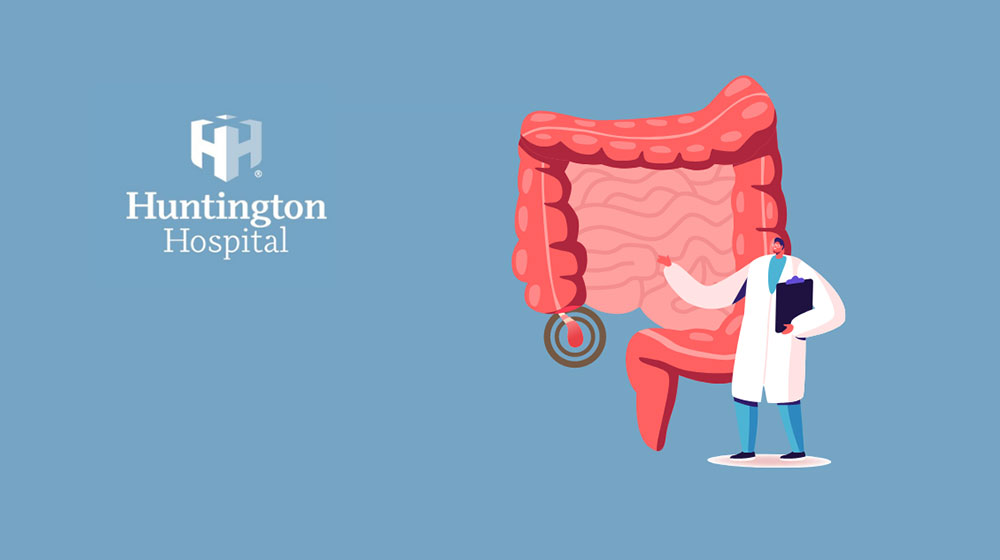A smooth-running gastrointestinal (GI) tract, or gut, does what it should: breaks down food into nutrients that the body can use for energy, growth, and cell repair, and it effectively gets rid of waste. Containing “good” bacteria and immune cells, a healthy gut also plays a big role in fending off pathogens—an essential part of the immune system. Additionally, the gut and the brain are closely connected: the bacteria in the gut produce neurochemicals, including the “feel-good” hormone, serotonin, that the brain scoops up to regulate processes like learning, memory, and mood. The GI system performs so many vital functions outside of digestion—from protecting us from microscopic invaders to having connections with the brain—it’s easy to see why GI health is essential.
GI maintenance
Huntington Hospital’s Medical Director of Gastroenterology, Richard Nickowitz, MD, offers some guidelines on how to maintain GI health: “Eating a healthy, well-balanced diet with an ongoing regimen of exercise and weight control is of utmost importance. In general, we recommend a relatively low-fat diet with good dietary fiber as well as moderate consumption of red meat and alcohol.”
In addition to a gut-friendly diet and exercise, Johns Hopkins Medicine suggests adding these GI-healthy tips to the mix: get more sleep, manage stress, and get help for anxiety and depression.
It’s also important to get checkups, which, thanks to National Colorectal Cancer Awareness Month, we are reminded every March to make that potentially lifesaving colonoscopy appointment. The American Cancer Society (ACS) estimates the U.S. will have over 150, 000 cases of colorectal cancer in 2022. But with early detection and intervention, well over half of those lives will be saved. The ACS recommends colon cancer screening to begin at age 45, or sooner for patients with a family history of colon cancer.
Warning signs of GI illness
GI conditions can come in many forms: gastroesophageal reflux (heartburn), peptic ulcer disease, irritable bowel syndrome, diverticulitis, gallbladder, and biliary tract disease, colon polyps, cancer, and hepatitis. According to the National Library of Medicine, one or more of the following symptoms may point to GI illness:
- Bleeding
- Bloating
- Constipation
- Diarrhea
- Heartburn
- Fecal incontinence
- Nausea and vomiting
- Abdominal pain
- Swallowing problems
- Weight gain or loss
Former Huntington Hospital patient Caesar Penney knows about GI red flags firsthand. In 2021 at the height of the pandemic, Caesar was suddenly stricken with severe abdominal pain. Thinking it would improve on its own, he waited, but the pain only increased. After he passed out at a local hospital’s emergency department, he later learned that he had a severe bowel infection caused by diverticulitis, a chronic GI disease. He would need surgery to remove the infected tissue in his colon.
Wanting the best care for his health, his search led him to Huntington Hospital surgeon Wes Powell, MD. “Dr. Powell made me feel like I was at the right place for the healthcare that I needed,” he remembered. “Everyone acknowledged my fear, always asked how I was feeling and made me feel comfortable. It’s a reflection of the type of institution Huntington Hospital is.”
Caesar is in good company with those who laud Huntington Hospital’s medical and surgical GI care. Healthgrades, the leading resource that connects consumers, physicians, and health systems, recently evaluated Huntington Hospital’s performance (among 4,500 other hospitals nationwide) and named Huntington a Five-Star Recipient for Treatment of Gastrointestinal Bleeding in 2022. This is significant because patients in Five-Star hospitals have a 78.6% lower risk of dying than if they were treated in hospitals with one star.*
Identifying disease
Ways in which GI doctors identify disease start with taking a history and performing a physical examination. Often a blood test, an abdominal ultrasound, or a CT scan of the abdomen and pelvis may also be requested. In addition to colonoscopies, gastroenterologists perform upper endoscopies, enteroscopies, and flexible sigmoidoscopies.
GI advances
Another procedure called endoscopic retrograde cholangiopancreatography (ERCP) is used to visualize the common bile duct and the pancreatic duct and treat any stones or tumors found there. Huntington Hospital is the first healthcare facility in the San Gabriel Valley to use disposable ERCP scopes, which is a significant safety advancement that reduces the risk of secondary infection—a rare complication associated with reusable ERCP scopes.
GI care
In a nutshell, gut health equals overall health—physical, mental, and emotional well-being—so it’s vital to take good care of your gut and yourself.
If you are experiencing GI issues, require a diagnostic test, or need surgery, take control of your GI health today. Learn more about gastroenterology care at Huntington Hospital or find a Five-Star local gastroenterologist.
References
* Statistics are based on Healthgrades analysis of MedPAR data for years 2018 through 2020 and represent three-year estimates for Medicare patients only.
 English
English Espanol
Espanol 简体中文
简体中文 Tagalog
Tagalog հայերեն
հայերեն 한국인
한국인 Tiếng Việt
Tiếng Việt فارسی
فارسی русский
русский 日本
日本 عربي
عربي